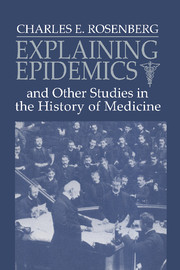Introduction: Why care about the history of medicine?
Published online by Cambridge University Press: 29 March 2010
Summary
Medicine has always had its historians; but until recently it was a history written by and for practitioners. Until the early nineteenth century, in fact, history and practice could hardly be distinguished. Galen and Hippocrates could be and were used to bolster arguments about the nature of fever or the logic of a particular therapeutic choice. A learned physician read Latin and Greek, not simply to mystify the laity but to work with those master texts that still figured meaningfully in his intellectual life.
By the late nineteenth century, of course, the writings of classical and Hellenistic antiquity were no longer alive in the thought and practice of even educated practitioners. History had become quite clearly history – something in the past. This is not to suggest that interest in the medicine of previous eras disappeared. It remained and was to become gradually – if even today incompletely – an academic field. But the history of medicine was still populated almost entirely by scholars trained in medical schools, the great majority of whom made their living as physicians. They were fascinated with the past (or some aspect of it), especially a past that could be construed as progressing upward toward an enlightened and ethical present. The intellectual significance of particular individuals and events was seen, for example, in terms of their relationship to the development of a contemporary understanding of the body and not to the particular historical context in which those individuals worked and thought.
- Type
- Chapter
- Information
- Explaining Epidemics , pp. 1 - 6Publisher: Cambridge University PressPrint publication year: 1992



